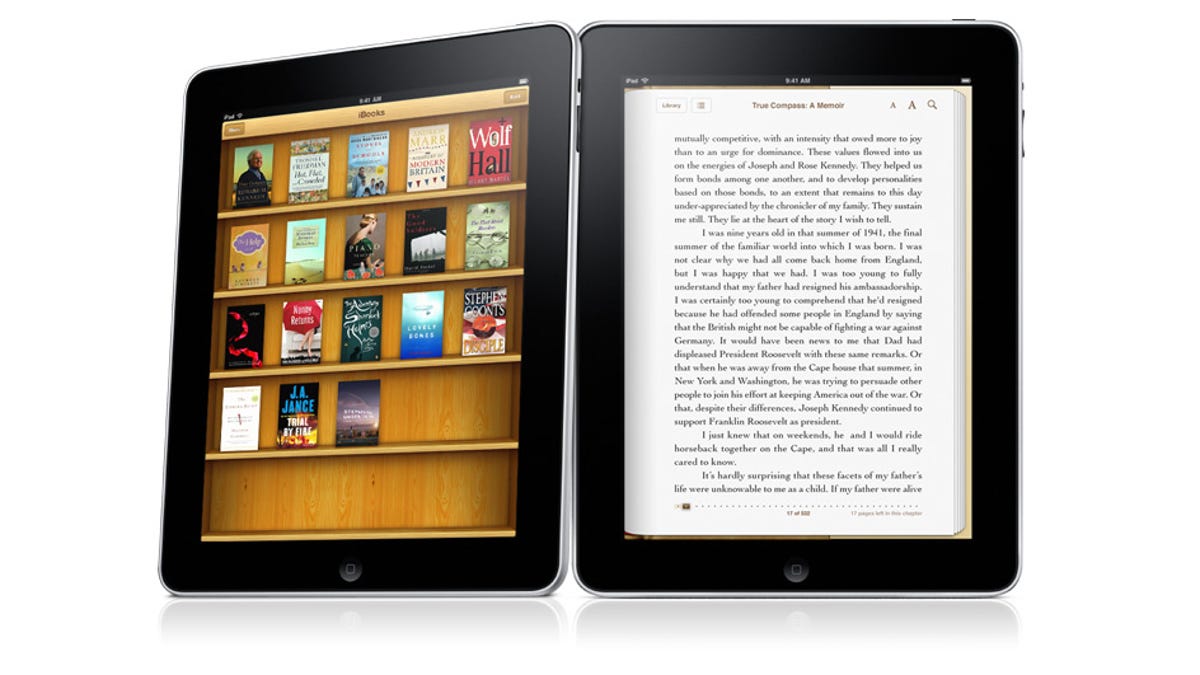 Why You Can Trust CNET
Why You Can Trust CNET What would you pay for an e-book?
As the e-book pricing battle between Amazon and big publishers continues to heat up, we ask readers to weigh in on what they'd be willing to pay for an e-book.

In recent weeks, the stand-off between Amazon and publishers over e-book pricing has received a lot media attention. At issue is who controls how e-books are priced and what pricing flexibility publishers have when coordinating releases of their hardcover books with their e-book counterparts.
CNET Poll
Many say the brouhaha was precipitated by Apple's iPad launch, which included a new e-book store (iBooks) with a pricing structure that appealed to certain publishers. In the wake of the launch, two major publishers, Macmillan and Hachette, have renegotiated deals with Amazon to move to an "agency model" that allows publishers to set prices for their e-books and give Amazon a 30 percent cut from the sale price. Word is that most--but maybe not all--of the "big six" publishers are interested in following suit with similar deals.
As any Kindle owner knows, Amazon has touted how it sells many new releases and all best sellers for $9.99. Under this arrangement, Amazon is willing to take a loss because it buys e-books from publishers for about 50 percent off the list price of the hardcover. For instance, if a hardcover lists for $24.95, Amazon buys the e-book for around $12.50 and sells it for $9.99.
On the surface, that may seem marginally crazy, but Amazon wants to attract people to its Kindle platform by offering the best selection of e-books at the best prices--and forcing competitors like Barnes & Noble and Sony to match those prices.
It's the old squeeze play, and though it may be a smart, cut-throat strategy that appears to have paid off so far, publishers have become gravely concerned that Amazon is gaining too much power in the quickly growing e-book arena. The fear is that though today Amazon's pricing terms are very favorable to publishers, tomorrow--or sometime in the future--the largest online book seller will flex its muscles and reset the terms to its advantage. Macmillan got a little taste of Amazon's strong-arm tactics when Amazon temporarily removed the buy buttons from all of Macmillan's titles to express its displeasure with Macmillan's pricing demands. Needless to say, Amazon's response didn't sit well with a lot of people, including our own Molly Wood.
In its defense, Amazon says it's just trying to give its customers what they want: reasonably priced e-books (Amazon referred to Macmillan's new e-book prices as "needlessly high."). However, publishers are worried that lower e-book prices will devalue books in general and not only cannibalize hardcover sales but diminish the format to the point that it's no longer viable. Thus, some publishers would prefer to start e-books off at a higher price ($12.99-$14.99), take what the market will bear, and gradually whittle that price down as a book makes its way through its publishing cycle.
However you feel about Amazon or the big publishers (both have engendered their share of animosity, judging from the various message board posts), objectively speaking, both sides have valid arguments. In the end, of course, the sales numbers will tell the tale, and like the music and movie industries, only a small fraction of the content produced is worth paying full price for. Ultimately, publishers should be working with the Amazons and Apples to create a more dynamic, elastic pricing model that truly takes advantage of the digital marketplace in the way Apple's already done to a degree with its App Store. Perhaps that will happen with time, but adhering to yesterday's formulas is a recipe for going out of business.
What do you think? Vote on the poll above to let us know how much you'd pay for an e-book, and sound off in the comments below with your thoughts.

